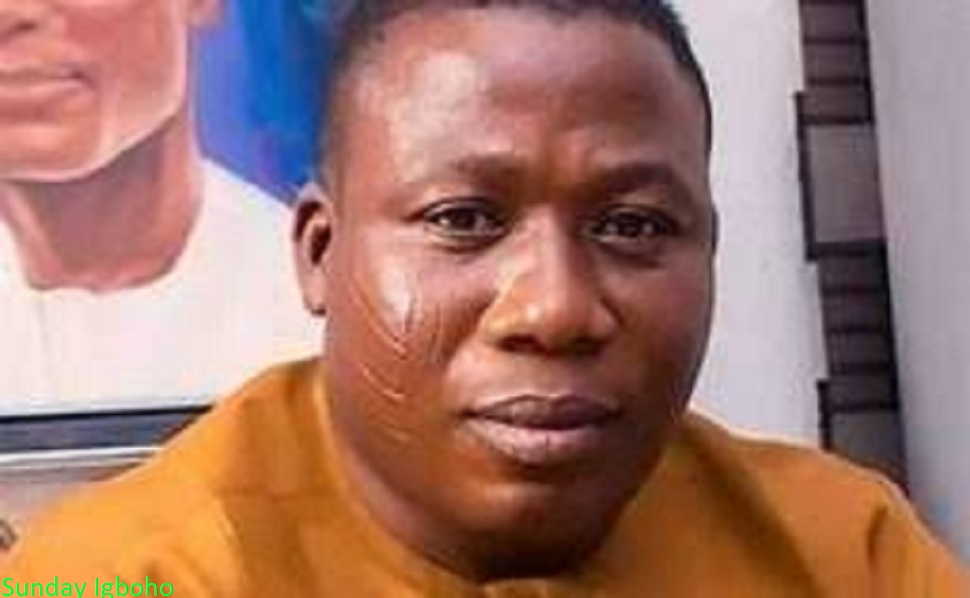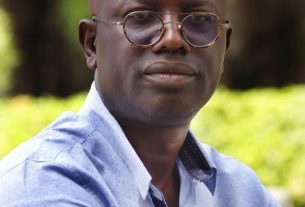The release of Yoruba nation agitator, Chief Sunday Adeniyi Adeyemo, popularly known as Sunday Igboho, in Benin Republic after two years of incarceration in the country over his quest for an independent Yoruba State and campaign against killer herdsmen in Nigeria has rightly been hailed across sections of the country. It is indeed a welcome development, signifying victory against oppression, the enslavement of fellow citizens, and callous disregard for human life by herdsmen who seemed to enjoy the backing of some ethnic bigots in the corridor of power. Although the federal government under former President Muhammadu Buhari did a lot to capture or neutralise Igboho for what the government then considered as his secessionist tendency, the truth is that Igboho was popular among his people and many other Nigerians who appreciated his courage to stand up against seeming official accommodation of ethnic cleansing and inordinate plan by Fulani herdsmen to appropriate land that does not belong to them.
Sadly, the government at the time either looked away or patted the culprits on the back as the herdsmen committed atrocities in their forceful venture. The real lesson is that where government fails to discharge its fundamental duty of securing people and providing for their welfare, a vacuum will inevitably occur in governance; and this will be filled by non-state actors such as Igboho. Many agitations for ethnic nationalism have similarly been propagated in other parts of the country basically on the perceived grounds of marginalisation or failure of government to protect and secure citizens from patent harm. The federal government under the new President Bola Ahmed Tinubu has an onerous duty to address the cause of these agitations and endeavour to genuinely assuage bruised feelings. Failure to do this as soon as possible will always pave the way for more agitations that may assume unpleasant dimensions.
For many years during Buhari’s presidency, killer herdsmen launched ubiquitous invasions of communities and their farmlands across the southern part of the country with their cattle, eating and destroying crops on farmlands, and the herdsmen raping and killing women and others on their farms with AK-47 rifles. Then, the concept of equality of all citizens, fundamental human rights, and justice for the wronged seemed to exist only on paper, and many Nigerians did not enjoy the security of life and welfare as enshrined in the constitution to be the primary purpose of government. Igboho came to the rescue of his oppressed and terrorised fellow citizens, especially his kinsmen in the Ibarapa area of Oyo State and other parts of the South West zone. He fought against what was perceived as hidden agenda of the herdsmen and their supporters in the administration of former President Muhammadu Buhari to terrorise their host communities, displace the people and take over their land.
Igboho was considered a threat to the successful implementation of the clandestine agenda. His residence in Ibadan, the Oyo State capital was attacked twice; the first being an attempt to set it ablaze; and the second time by men of the Department of State Service (DSS) who stormed the place at midnight, killed two people, and destroyed property worth millions of naira. While fleeing the country, Igboho was arrested in Benin Republic over irregular travel documents and was in custody for two years at the behest of the Nigerian government. It is lamentable that as Igboho regained his freedom and plans to return to Nigeria, insecurity is still widespread in the country.
Igboho’s popularity soared in 2021 while agitating for the freedom of the South West zone, particularly when he gave an ultimatum to killer herdsmen in the Ibarapa area of Oyo State to vacate the land after the herdsmen killed some Yoruba people. Following reports of similar killings of innocent people in Ekiti, Ondo, and other parts of the Yoruba land, Igboho started a campaign to chase killer herdsmen and kidnappers away from the entire South West zone. In March 2021, he declared the Yoruba nation’s sovereignty. The Federal Government considered Igboho’s activities as a threat and moved against him.
While campaigning for the safety of life and property in Yoruba land, Igboho, in a statement he issued, said he was not at war with then President Buhari, any state governor, or government official but the failure of the government to address the insecurity in Yoruba land caused by killer herdsmen and kidnappers. “What I want the government to do is to address the genesis of my agitation for the Yoruba nation, which is the insecurity in Ibarapa and other places in Yoruba land where farmers were maimed, hacked to death, kidnapped and raped as if there are no security personnel in the country. Everybody deserves to be protected and feel safe in their country regardless of their tribe, religion or political leanings.
“At some point, our people became helpless and can no longer go to their farmlands again. Scores of farmers were butchered to death in 2021 and the government pretends that all is okay. .. this was why I rose to stop the menace. I didn’t speak up to fight the government I spoke up to ensure protection for our people. The government must rise up and put an end to the havoc caused by herdsmen that are criminals and give everyone a sense of belonging – whether foreigners or locals – and stop the attack on our people in Yoruba land.”
Igboho’s release and his planned return to Nigeria should impress the government with what he stood for during his agitation, which is the security of life and property of all Nigerians, freedom of speech, and freedom from enslavement, oppression, and maltreatment of Nigerians either by the government, individuals, groups or ethnic nationality.
It is unfortunate that despite the huge resources already committed to fighting insecurity, innocent Nigerians are still being killed freely and at will across the country by terrorists, killer herdsmen, sit-at-home enforcers and other hoodlums. When not chased out of their farms, farmers are being asked to pay taxes to terrorists before being allowed to harvest their farmland, leading to food insecurity; travelers are in constant fear of being kidnapped and held to ransom while investors are becoming more scared of the country.
Government must realise that where there is no security, there can be no serious development. In line with its constitutional obligation therefore, the government must embrace all lawful means to ensure the security of life and property; and erase the perception of neglect and discriminatory treatment by many Nigerians. An embrace of true federalism can provide a lasting remedy to this imbalance.
The Guardian





